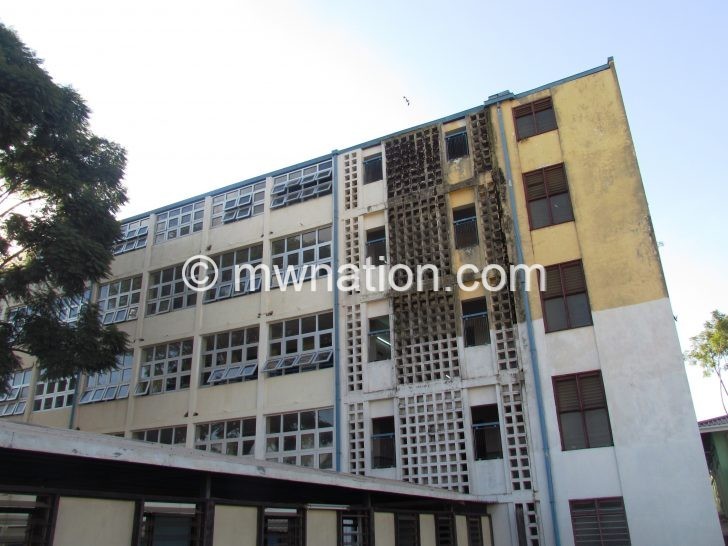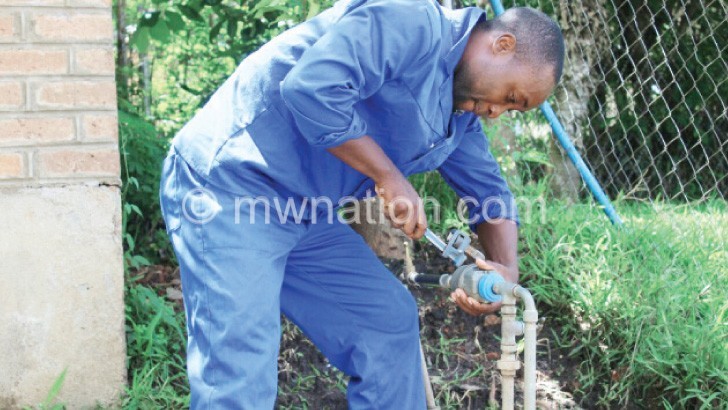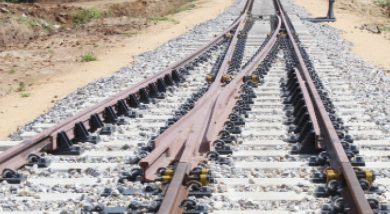KCH, Army, Police taps sealed
State-owned utility company, Lilongwe Water Board (LWB) this week disconnected water from fellow government entities including the Army, Police and the country’s biggest referral hospital amid a row over unpaid bills.
The board sealed taps at Kamuzu Central Hospital (KCH), Kamuzu Barracks, Police Headquarters at Area 30 and Maula Prison.

However, a war of words has ensued after Treasury accused the LWB of taking the action due to government stance that the board should pay tax arrears it was not paying to revenue authorities—a suggestion the board has quashed.
LWB spokesperson Maurice Nkawihe confirmed the disconnections and revealed that several other government entities, including State House, Bwaila District Hospital, Malawi College of Accountancy, Lilongwe Girls Secondary School, Lilongwe Teachers College, are also targeted for similar action.
He said the institutions owe the board a sum of some K3.7 billion and warned that the board was serious about ensuring that every customer was paying their bills.

“They should take us seriously because we have already disconnected some of the institutions. As a board, we need customers to pay their bills to improve on our service delivery and we need to generate new revenue to invest in the system,” said Nkawihe.
However, in an interview yesterday, Secretary to Treasury, Ben Botolo, argued that LWB was retaliating after government pushed the board and other State-owned companies to remit billions in unpaid taxes to the Malawi Revenue Authority (MRA).
“The genesis of this is that the boards are collecting money but abusing it. This is not dividends or profits but money they collect as tax, which must go to Account Number One. They collect VAT (Value Added Tax) and Paye (Pay As You Earn) but do not remit it.
“They are now reacting through the disconnections because we have told them they need to stick to the law and pay what is owed to MRA. We cannot allow a government entity not to follow the law because those remissions are mandatory by law,” said Botolo.
Botolo, however, insisted that Treasury will not intervene by bailing out the disconnected institutions as each entity is provided with budgetary allocations to foot such bills.
“They are given resources and we will not come in because these departments have budget lines they must follow. If they are not paying their bills, it means they are not adhering to budgets,” he said.
Efforts to speak to MRA spokesperson Steve Kapoloma proved futile yesterday as Weekend Nation sought verification on the tax bill owed by the various boards which Botolo did not specify.
But LWB, through Nkawihe, rejected the claims by Treasury yesterday, saying the board has been living up to its tax obligations.
“We cannot comment on what the ST (Secretary to Treasury) has said, but the disconnections are done regularly. This is the end of our financial year and we are doing this to clear our books. We don’t want to start a new year with arrears. We are not just targeting government institutions, but even private institutions. We are disconnecting any customer who has an outstanding bill of over 30 days,” he said.
At Kamuzu Central Hospital, staff and patients felt the impact of the impasse most this week when we visited the facility.
According to the hospital’s public relations officer Tiyanjane Kazombo, LWB earlier in the month replaced the hospital’s post-paid water meters with a prepaid system, but despite paying for water under the new system, LWB went ahead to disconnect water on Monday this week.
“We indeed owe them some money and we have been engaging Treasury and Ministry of Health to help us out. They installed the pre-paid meters on June 12. There was no water on 17th and 18th June, although we paid K20 million to the water board. There was no network at the [bank] nor at the water board to buy units and they had to do it manually,” said Kazombo.
She added that the situation compromised service delivery by postponing theatre procedures, forcing operations to be limited to emergencies. And there were worries over infection to staff and patients as staff failed to clean up some places where the water tank does not reach.
The situation at the hospital has further been compromised by water leakages through archaic pipelines, with leakages forcing the hospital to be paying as much K100 000 per day, prompting frantic efforts to repair the system.
The disconnections are unprecedented, but point to long standing inefficiency and prudence challenges in the public sector.





